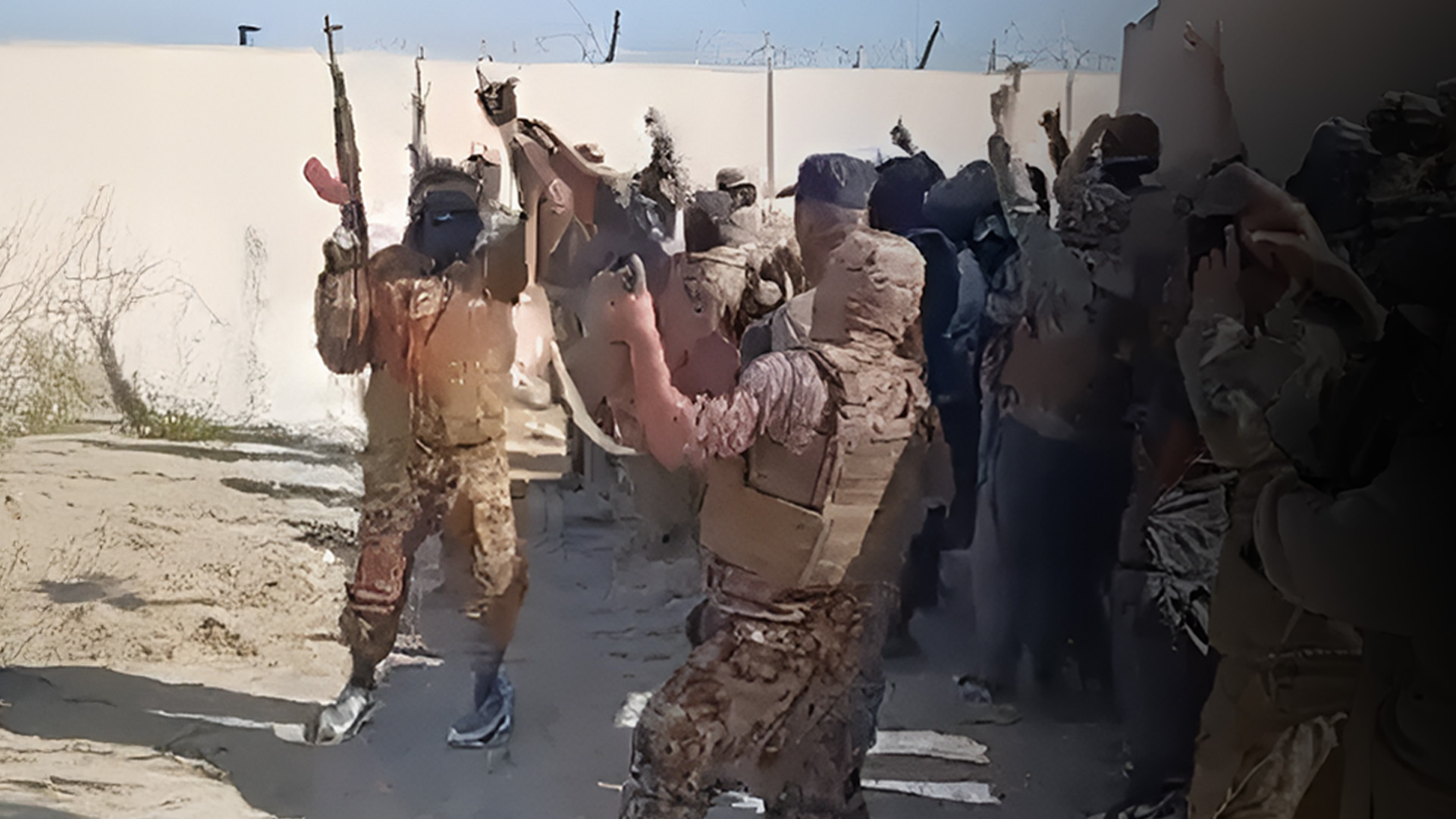Clashes in Idlib: Syria Launches Major Operation Against Foreign Jihadist Group
Syrian security forces launched a major operation against foreign jihadist Omar Omsen's Firqat al-Ghuraba group in Idlib, following kidnapping allegations and failed negotiations. The clashes mark the transitional government's first direct confrontation with foreign fighters since taking power.

ERBIL (Kurdistan24) – Syrian security forces on Wednesday launched a large-scale operation against a group of French jihadists in northwest Syria, marking the first direct confrontation between the country’s new transitional authorities and foreign fighters since the fall of Bashar al-Assad’s regime last December.
The clashes erupted after security units surrounded Haram camp, a camp belonging to Firqat al-Ghuraba (The Strangers Brigade) near the town of Harem in Idlib province. The group is led by French-Senegalese jihadist Omar Diaby, known as Omar Omsen, a former Al-Qaeda affiliate who has been designated by Washington as a global terrorist and wanted by France for years.
According to the Syrian Observatory for Human Rights, the operation began late Tuesday and continued into Wednesday after the authorities accused Omsen’s group of abducting a young girl. The Internal Security Directorate announced that the security forces had “encircled the camp after the group refused to surrender suspects wanted by their home country.”
Brigadier General Ghassan Bakir, head of the Internal Security Forces in Idlib, stated in an official release that “efforts were made to negotiate Omsen’s peaceful surrender,” but he refused, “took cover inside the camp, prevented civilians from leaving, and opened fire to intimidate the population.”
Security forces subsequently tightened the cordon, established observation points around the camp, and began a cautious advance. “The security services will continue to take all necessary legal and security measures to enforce the rule of law and protect civilians,” Bakir said.
By Wednesday afternoon, field sources and local correspondents reported that the intensity of the clashes had decreased, though the area remained under lockdown amid mediation efforts by other jihadist factions.
In a recorded message released on Telegram, Omsen denied the accusations of kidnapping, describing them as “fabrications by the French intelligence services.” He accused the French authorities of coordinating with Syrian security bodies to eliminate his group, claiming that “French intelligence met with Syrian officials and told them that Omsen was planning an uprising against the government.”
Omsen alleged that the Syrian operation was launched following French demands for the extradition of two French nationals and claimed that “the security agencies under al-Jolani are obeying French intelligence when they are told something.”
“My blood is treated like water,” Omsen declared. “Is this the justice we fought for? Where is the promised Islamic governance that protects the oppressed?”
His son, Jibril, confirmed in a message to Agence France-Presse that the fighting began after midnight and accused the security forces of “bombing the camp where women and children are living.”
The Syrian Observatory said the situation calmed down later in the day, with mediation led by Asian jihadist groups close to Omsen’s men. A correspondent from AFP observed minimal traffic on the roads leading to the camp, where masked foreign fighters remained deployed around the perimeter.
Residents in nearby Harem described a night of “sporadic shelling and explosions” followed by a heavy security presence in the morning. “We stayed indoors all night,” one local said. “Armed vehicles kept arriving one after another.”
The Ghuraba Brigade—made up mostly of French nationals who settled in Syria during the civil war—operates from a heavily fortified camp near Harem, enclosed by walls equipped with surveillance cameras and motion sensors to protect the privacy of its members and their families.
Led by Omar Omsen, the group has long been regarded by Western intelligence agencies as one of the most influential French jihadist networks. French authorities accuse Omsen of recruiting nearly 80 percent of all French-speaking jihadists who traveled to Syria and Iraq between 2013 and 2016.
Born in Senegal and raised in France, Omsen had a criminal record before embracing extremism. He left for Syria in 2013 and established his own faction in the forests of Latakia, later aligning with Jabhat al-Nusra, Al-Qaeda’s then-affiliate in Syria. In 2014, the United Nations Security Council added him to its sanctions list, and two years later, the U.S. State Department designated him a “global terrorist.”
He was detained by Hayat Tahrir al-Sham (HTS) in 2020 and held for nearly 18 months before being released in early 2022.
This confrontation marks a critical moment for Syria’s Transitional Government, led by President Ahmed al-Sharaa, which has sought to project moderation and consolidate authority after the collapse of Assad’s regime.
Security experts say the incident underscores the growing challenge of dealing with thousands of foreign fighters who remain in Syria, many of whom refuse to disarm or integrate under the new administration.
Since taking power, al-Sharaa has dissolved all armed factions, including HTS, and announced their integration into the new Ministry of Defense. However, remnants of extremist cells and autonomous groups—such as al-Ghuraba—continue to resist central control, complicating the country’s fragile post-war landscape.
The clashes have drawn attention in Paris and Washington, where officials have long regarded Omsen as a symbol of the French jihadist network in Syria. European security agencies estimate that around fifty French fighters, along with their families, remain in his camp in Harem.
Analysts view the incident as both a test of the new government’s authority and a signal of its willingness to cooperate with international partners in combating transnational militancy while maintaining a focus on law enforcement and civilian protection.
As calm tentatively returns to Harem, questions remain over whether this confrontation marks the beginning of a broader campaign against remaining foreign fighters—or a prelude to a deeper security dilemma in Syria’s northwest.